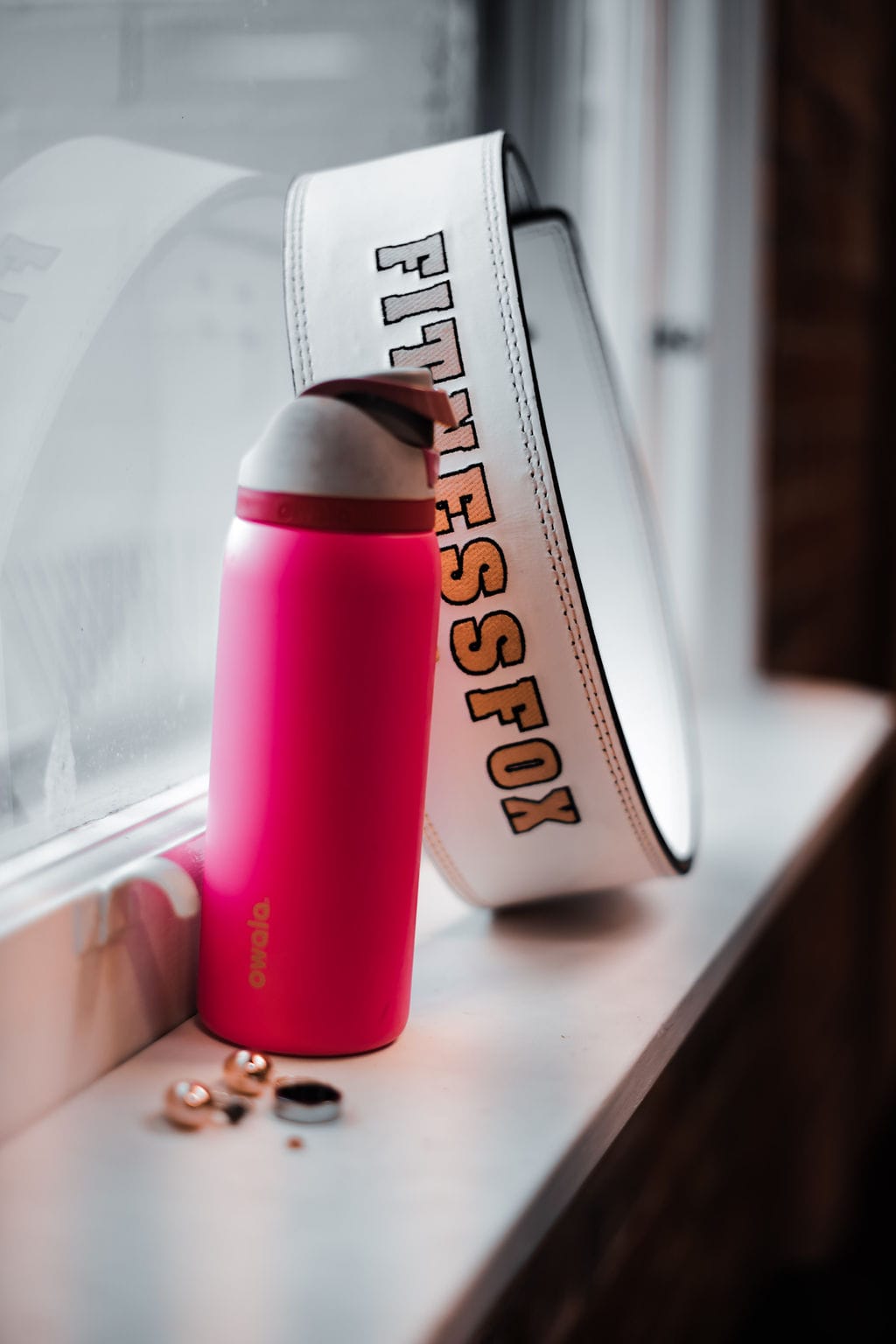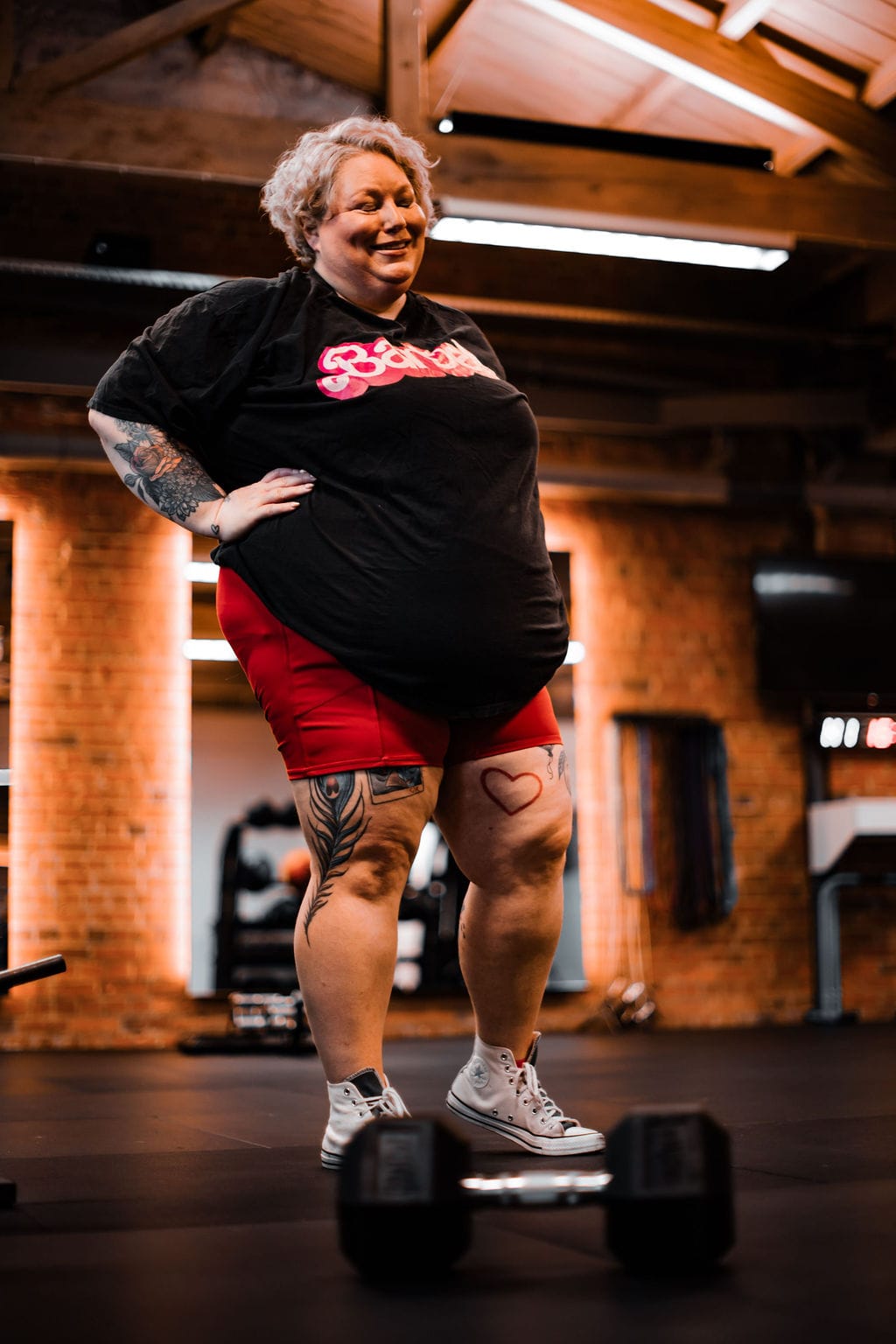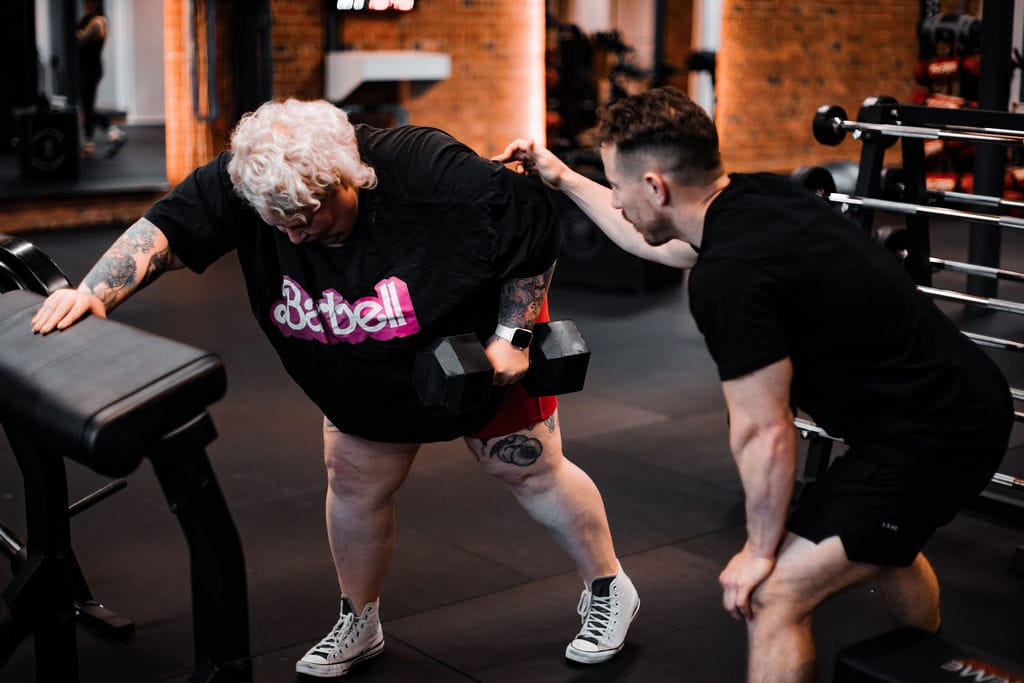Living More, Not Weighing Less
Hi everyone! Megan here, with some vulnerable thoughts this week. We’re gonna talk about weight loss. Kind of.
Neither Carl nor I are doctors - you should really get yourself one of those, preferably a good one - but I am a journalist of 20 years, and I know when a point is being missed.

Case in point: a recent Nine to Noon interview with Susie Fergusson, endocrinologist and diabetes expert Associate Professor Rosemary Hall, and Exercise New Zealand CEO Richard Beddie about “weight loss drugs” and muscle mass.
This isn’t a criticism of the conversation. No one was factually wrong. Everyone asked smart questions and gave thoughtful answers. I’ve interviewed Rosemary before; she taught me a lot about diabetes and hormones. And these conversations are essential—especially as new treatments become more widely available.
And yet.
I’ve been on a GLP-1 medication for a year—not for weight loss, but for diabetes. It’s transformed my blood sugars so profoundly that I’d no longer be classed as diabetic. I’ll probably take it for life.
But here’s the thing: for me, it’s not about weight-loss, and I get defensive whenever anyone suggests that it is. I’m not chasing a number on a scale. My journey has been about health—measurable, life-extending, quality-of-life health. The kind that when I wake up in the morning, I feel better. The kind that comes from feeling loved and valued, and wanting to stick around and feel more of that.
That journey started with picking up weights. Not as a side note, but as the foundation. Lifting has given me muscle mass that supports my blood sugar, blood pressure, cholesterol, mood, and resilience. It’s given me visible pecs, which are fun, but it has also changed how much energy I have, how capable I am, and my confidence in my body.
Recently, I was walking down Courtenay Place in Wellington at midnight on a Saturday night, and I barreled through a group of young men without thinking. A companion observed that I wasn’t in any way intimidated, and no, I wasn’t. (Despite teenage boys being the very worst.) I wasn’t nervous ‘cos I have muscles. Because I know I can stand up for myself. Because lifting has changed how I move through the world.
So when my GP first suggested a GLP-1, I cried - at three separate appointments - before saying yes. I was terrified of losing the muscle I’d worked so hard to build. That wasn’t vanity. It was a reaction to any number of articles about how muscle mass loss was a major side effect, and I was genuinely worried about what that meant for my life.
So why do we keep calling them “weight-loss drugs”? Why frame exercise as something to “burn calories” instead of to build a body that can carry you through life?
Imagine if we said: “Here’s a drug that can improve your insulin sensitivity and help your appetite and make it take longer for glucose to enter your bloodstream.” Or that could be an excellent treatment for addiction.
Or: “Here’s exercise and nutrition advice that could make you stronger, boost your mood, help you sleep, and—bonus—add years to your life. Not to mention make those years worth living”
Because when you’ve been told your whole life to lose weight, any advice - even good advice - feels like another way of saying your body is wrong. And if all we ever talk about is weight, we miss the real story: the pursuit of health, strength, and joy in what our bodies can do.
My body isn’t bad. It’s extraordinary. It carried me through life, even as it was wildly anemic. It has allowed me to express joy and heartbreak, and it can squat more than most people think possible. Yes, it needs help sometimes. But it’s worth helping—not because of how it looks, but because of what it can do, and the life it lets me live.

We are so much more than the number on a scale. Lifting taught me that. I wish we talked about health that way more often.
As you might expect, when I was talking to my doctor about going on the drug, I was also talking to Carl about what to do. How to maintain my gains, but also why we still insist on making this stuff about “weight”, and not about making your life better overall.
I’ll hand over to him now—because as a trainer, he sees every day how focusing on strength over size changes people’s health, confidence, and future.
First of all, I feel as if this is a super meaningful and important discussion. Working with Megan has reinforced my opinion on this topic and after reviewing research, further again.
The first discussion point for me is around health outcomes. Firstly, why are we still so weight focused? Yes, there is research showing a correlation between weight and disease, however much of this is mitigated when considered health behaviors are overlaid.
We know that correlation is not causation.
What we do know is that if there are certain behaviours present, you can have better quantity and quality of life. Therefore living longer and/or better. We know that, for example:
- Walking can extend life: Step count and walking in general can extend lifespan, even 15 minutes per day can increase lifespan, but if you walk fast, even better! Fast walking may increase lifespan by around 20%
- Lifting weights can improve quality and quantity of life: Because… muscles! Well not just, but that too! Regular resistance training (lifting weights), has been linked to around a 21% reduction in all cause mortality (death)! In combination with some cardio, its stretches out by up to 40%!
- Doing some zone 2 cardio can extend life: Around 2.5-5 hours per week of moderate to vigorous cardiovascular exercise is linked to both longevity and quality of life. Too much seems to be linked to negative health outcomes (unless you're an endurance athlete, this probably won’t be an issue!).
- Eating enough fruit and vegetables can improve quality and quantity of life: There is a lot of research linking the amount of fruit and veg to lifespan, to the point that nearly every diet zealot will find it hard to argue! To clarify, the more fruit and veg you eat, the lower your risk of disease and death is, especially cardiovascular. Meaning you will live better and longer!
- Having good, healthy social connection can improve quality and quantity of life: Research indicates that having strong social connections and relationships increase both happiness scores and longevity (perhaps up to 50%). It also helps buffer us against the negative impacts of stress and traumatic events.
- Not abusing alcohol: It's no secret that both regular, and high alcohol intake (5 or more standard drinks) increase all cause mortality and disease risk. Translating to - the more you drink and the more regular you drink, the more likely you are to cut your lifespan short and be unwell. Regular drinking can negatively impact sleep and mental health outcomes also, so if these are present in your life, perhaps take note. This said, irregular and moderated drinking in a social environment may not be as dangerous.
- Not smoking: This is a no brainer now. Regular smoking increases risk of all cause mortality by around 35% in females and 30% in men when compared to non smokers! Before you reach for the vape, there is little long term quality research out there but the research that is out there is not trending in a direction that I’d be comfortable with! It is linked to negative mental health, respiratory dysfunction, cardiovascular issues and even brain development in youth.
If I was to create a wellbeing checklist to keep you alive, happy and healthy I’d ask:
- Am I walking at least 15 minutes per day (and fast)?
- Am I lifting weights for at least 90 minutes per week?
- Am I doing at least 2.5 hours of cardio per week?
- Am I eating 5 or more servings of fruit and veg per day?
- Have I got a good friend that I can share anything with that I connect with weekly?
- Do I have one community in which I regularly engage with?
- Am I drinking more than 5 alcoholic drinks per week?
- Do I smoke or vape?
These are true indicators of health and wellbeing and even if you are obese, will buffer you against disease.
So why do we not value these things more, over how someone looks or how much they weigh?

Also, in regards to being strong and lifting weights. I have coached thousands of people now, so I have many reference points (I'm not claiming to be an authority on this like leading researchers).
I have found that when people focus on strength and other performance measures it helps create more sustainable and gratifying change. Part of this, I believe, is because when we focus on physical aesthetic outcomes alone, it's easy to derail as our personal filters are not fair, accurate or consistent!
It also creates an unhealthy relationship with one's body, I know, as I’ve been there (I did competitive bodybuilding for years, so when I get the resemblance of a love handle I think I’m fat!).
Another part is, it's purely outcome driven. It's hard to fall in love with the process when you are focused on looks as it's slow. Performance gains are different. Within weeks you may notice the stairs are easier, less painful and perhaps you notice what's going on around you if you're not so focused on survival.
When we focus on performance, we feel better in every day life, we experience the changes, as Megan described above and these things are deeply gratifying and bleeds over into mental/emotional wellbeing.
The second point worth weighing in on (see what I did there?) is the GLP-1 medications from a health perspective. The thing I have a ethical issue with is that they've been labeled "weight loss drugs", and therefore fed right into our toxic slimming culture, depriving people who need it for medical reasons.
According to research, GLP-1s may have weight loss effects at least in the short term. However as Richard Beddie pointed out in that interview - what about muscle mass? There is a growing body of research suggesting that muscle loss is a major side effect of GLP-1 medication.
Why is this important? Because muscle mass is an indicator of health and is associated with longevity. It is also a major contributor to metabolism. Meaning that the higher muscle mass, the faster your resting metabolism is.
Where is the support, education and prescription around maintaining and even attaining muscle mass (and strength)? This alone can help with wellbeing outcomes. In regards to working with my clients on GLP-1 medications, we focus on:
- Getting enough dietary fiber and protein (this is tough) - At least 1.2 grams of protein per kg of bodyweight per day (I’d suggest 1.6 if you are resistance training). You can use an app like MyFitness Pal to track this for a week. Fiber intake I get my clients to aim for at least 30g per day, however the more, the better! This is for digestive and health outcomes.
- Resistance training consistency (also tough, but more fun - especially if you love it like Megan!). Looking at 3 or more sessions per week of at least 30 minutes.
These things alone can help aid the process, increase health outcomes and also keep that well earned muscle!
Health isn’t a number on the scale, and it’s not a before-and-after photo. It’s how strong you feel when you carry your groceries, how steady you are when life throws you off balance, and how much joy you can wring out of the years you have.
Whether that comes from a medication, a barbell, a brisk walk, or a friend who makes you laugh, it all matters. Wouldn’t it be nice if we could talk about health as living more, not weighing less—and finally stop missing the real story?
Cool Shit we saw this week
If you liked this week's newsletter, Casey Johnston on Ozempic is worth a read.
How long do you need to rest between sets for? Long enough to scroll instagram, usually.
Last night I watched the powerlifting at the world games. Karlina Tongotea lifted a 260kg deadlift (!!!) to win gold and break the world record. Completely epic. You can watch it back here.
"The experience has infuriated me. I believe doctors saw my weight gain and age and made assumptions that allowed them to look no further. I chased every symptom but the true cause and may have even had a surgery I did not need because of high calcium’s impact on my menstrual cycles." Infuriating.
Take your creatine, kids.
An article by RNZ highlighting the importance of getting your bloods done, especially checking your vitamin D levels in winter in NZ! - About 1/3 of the All Blacks were low in vitamin D. Vitamin D deficiency can affect many systems in your body, including your immune system and bone health. It can also contribute to cognitive function and mental health.
Revisiting an old philosophy about movement - Arnoldian theory - An idea of learning about, in, and through movement. 'About' being the anatomy, physiology etc. 'In' being the kinesthetic - how it feels and the motor patterning associated, and 'through' being the lessons and learnings that come from it, like grit, teamwork, intuition and more.
